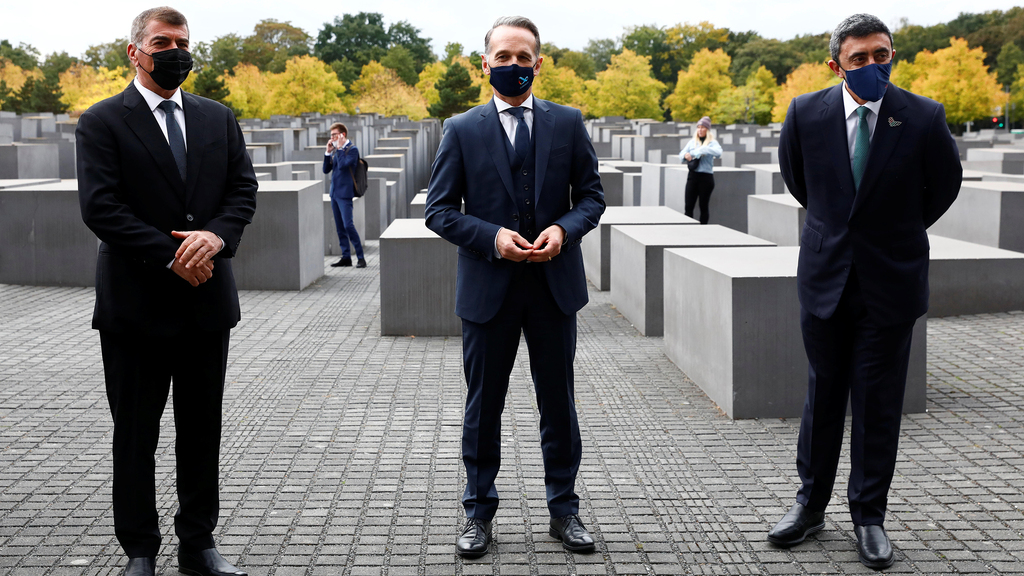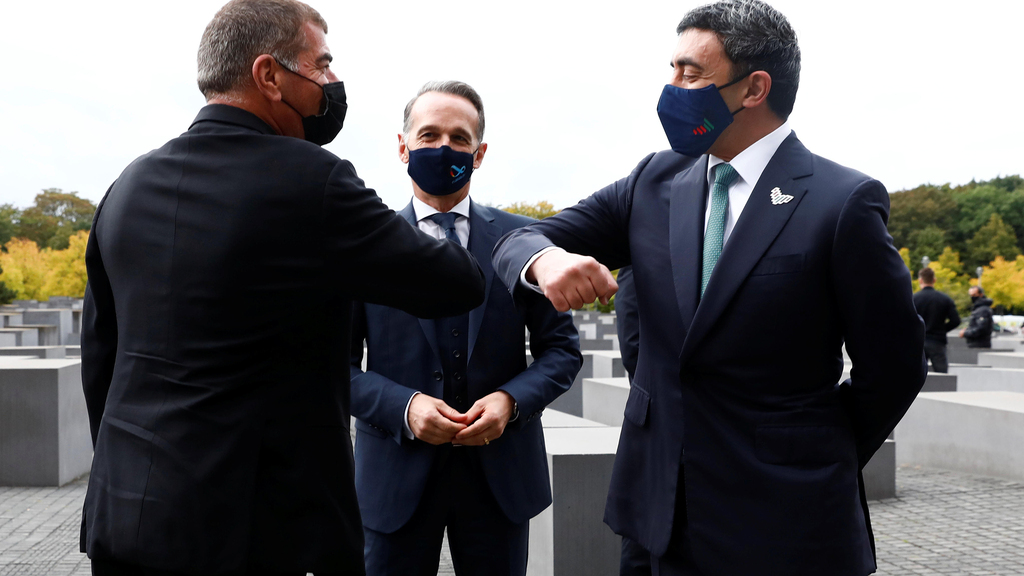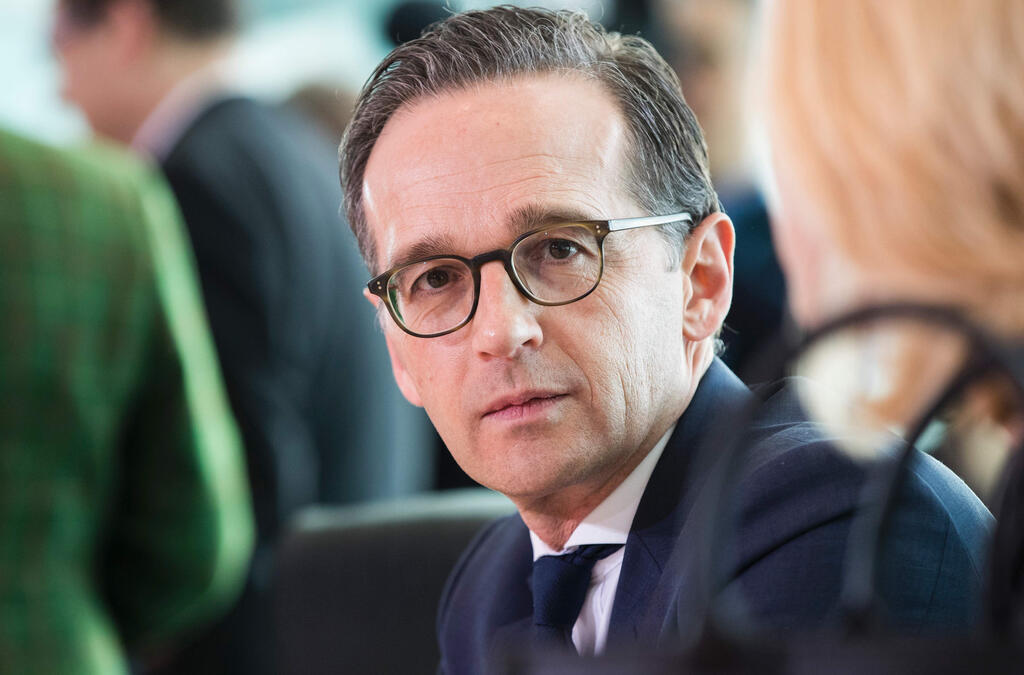The foreign ministers of Israel and the United Arab Emirates visited the Holocaust Memorial in central Berlin during their "historic" first meeting in the German capital on Tuesday.
Gabi Ashkenazi and Emirati counterpart Abdullah bin Zayed Al Nahyan were meeting in Berlin for talks that Germany hopes will strengthen nascent ties between the two nations and bolster broader Middle East peace efforts.
5 View gallery
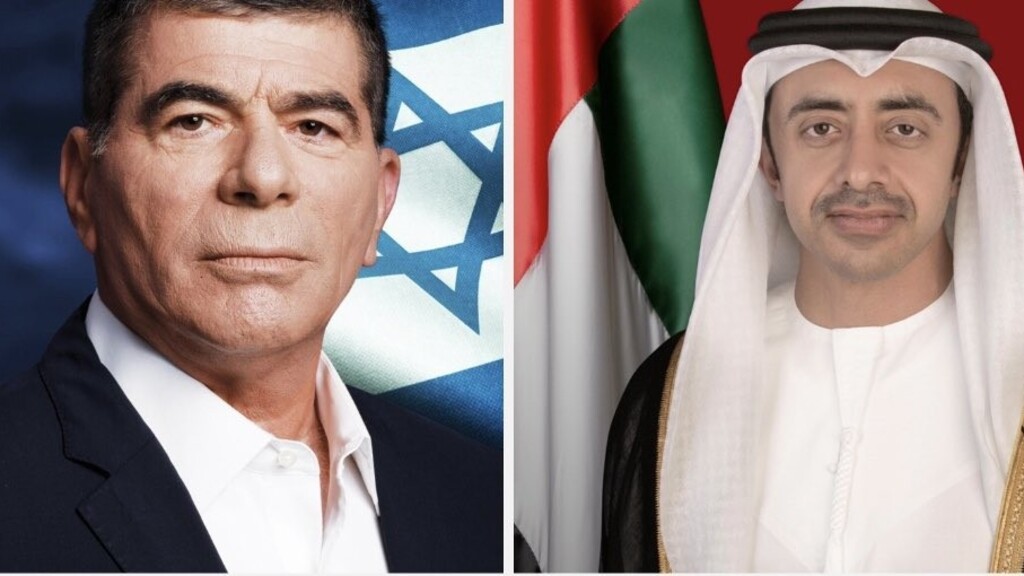

Foreign Minister Gabi Ashkenazi, left, and his UAE counterpart Sheikh Abdullah bin Zayed Al-Nahyan
(Photo: Twitter)
Accompanied by their host, German Foreign Minister Heiko Maas, the pair walked through the sombre monument, a vast undulating labyrinth of more than 2,700 grey concrete blocks spread over an area equivalent to three football fields.
It commemorates the slaughter of six million Jews by Adolf Hitler's Nazi regime.
The visit by Sheikh Abdullah to the Holocaust Memorial is a highly symbolic step, marking the shift in attitudes in the Arab world towards Israel and Jews.
Maas said it was a "great honor that the Israeli and Emirati foreign ministers have chosen Berlin as the location for their historic first meeting" since the two countries agreed to normalize relations earlier this year.
"The most important currency in diplomacy is trust and I am personally thankful to both my colleagues that they are placing this trust in Germany,' Maas said in a statement. "We are doing everything we can to be good hosts for the dialogue between the two countries on how to shape their future bilateral relations."
The agreement, signed at a White House ceremony last month, reflects the changing politics of the Middle East, in which shared concerns about archenemy Iran have largely overtaken traditional Arab support for the Palestinians, who reject the deal as a betrayal.
Ashkenazi and bin Zayed Al Nahyan were meeting, along with Maas, behind closed doors at a secluded government guest house on the outskirts of the German capital.
5 View gallery
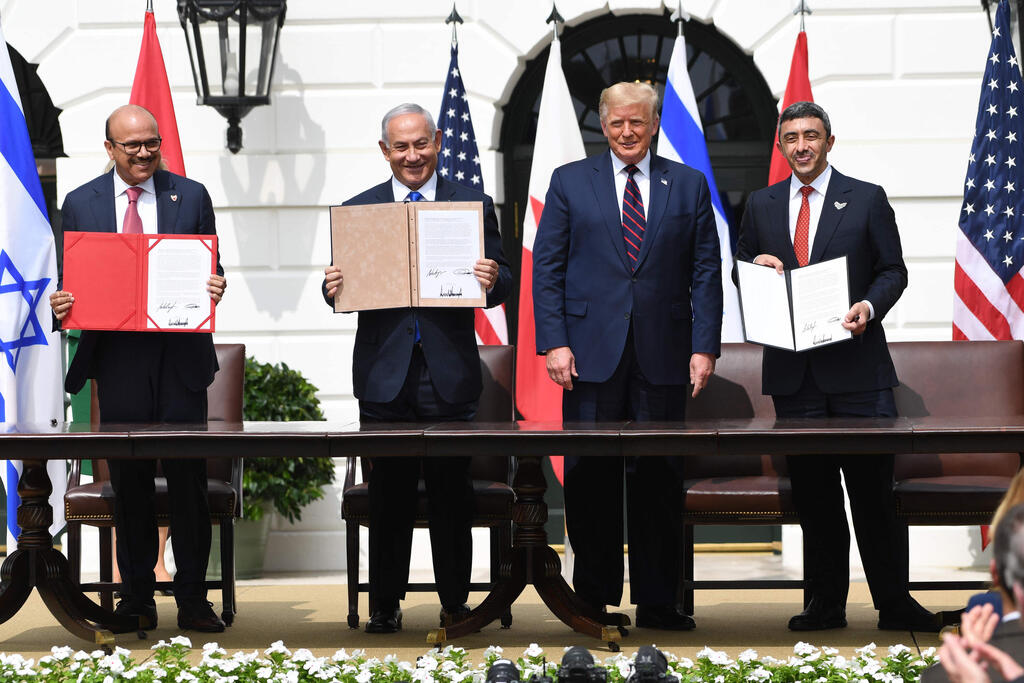

L-R: Bahrain FM Abdullatif al-Zayani, PM Benjamin Netanyahu, U.S. President Donald Trump, and Emirati FM Abdullah bin Zayed Al-Nahyan at the signing of the Abraham Accords at the White House
(Photo: AFP)
Maas said the "courageous peace agreement" between the two countries is "the first good news from the Mideast in a long time, and at the same time an opportunity for new movement in the dialogue between Israel and the Palestinians."
Germany is a strong supporter of Israel, but at the same time has been critical of its settlement policies and also works closely with the Palestinians and is in favor of a Palestinian state as part of the two-state solution.
Maas said "courage and trust" are what is needed in the Middle East peace process.
"We must seize this opportunity, and Germany and Europe want to help," Maas said. "I hope that Berlin can offer a good framework to discuss further steps on this path."
Bahrain and the UAE became the first Arab nations to establish relations with Israel since Egypt in 1979 and Jordan in 1994.
First published: 14:53, 10.06.20


